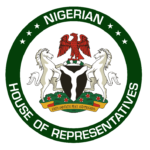The House of Representatives on Tuesday passed a bill seeking to impose ‘Windfall tax’ on commercial banks that benefited from the Central Bank of Nigeria (CBN) subsidies on forex.
This followed the consideration and adoption of the Report of the Committee on Finance on a “Bill for an Act to Amend the Finance Act, 2023 to impose and charge Windfall Tax on Banks and Provide for the Administration of the Tax and for Related Matters (HB. 1611).”
Reading the synopsis of the bill, House Committee chairman on Finance, James Faleke recalled that the Central Bank of Nigeria as part of measures to address the forex crisis in the country and bring in some stability, intervened by selling out forex below the official exchange rate.
Daily Trust reports that the apex bank as part of measures to arrest the free fall of naira sold out dollars at the rate of about N1,020/$.
- NIGERIA DAILY: How To Mitigate The Impact Of Rain On Ordinary Nigerians
- Ripples over proposed inclusion of foreigners in Nigeria’s NIN registration
Faleke however said that notwithstanding the interventions, the volatility in the forex market continued, thus making many commercial banks who benefitted from the interventions make a lot of profits which are not normal.
But a former President of the Nigerian Bar Association (NBA), Dr. Olisa Agbakoba has described the windfall tax being proposed by the federal government as ill-thought out.
He said the tax will negatively impact bank operations and its customers in Nigeria.
Daily Trust reports that the Senate had last week passed President Bola Tinubu’s request to amend the Finance Act to impose a one-time windfall tax on banks’ foreign exchange profits in 2023.
The government also proposed the imprisonment of principal officers of banks who fail to comply with the one-time tax.
But Agbakoba, a Senior Partner and Head of the Alternative Dispute Resolution (ADR) and Arbitration practice group at Olisa Agbakoba Legal (OAL), in a chat with Nairametrics said customers would bear the burden.
He cautioned the President against imposing additional burden on the people in its drive to raise revenue.
He said, “The first thing that will happen is that customers will bear the burden of the so-called windfall legislation.
“Again, windfall legislation is generally seen as unacceptable to the commercial community. Even in the UK, where there was a proposal to pass windfall legislation in respect of oil profits that Shell and other oil companies were said to be making, there was an uproar.
“When you pass windfall legislation taking 50% of somebody else’s earnings, that person will immediately transfer it to those closest to them.
“It is obvious that those closest are Nigerians whose money is actually deposited.
So, the issue here is the realized profits. The law states that realized profits will be liable to windfall tax.
If banks make realized profits on accounts, they are likely to find ways to recover the windfall tax because the magnitude proposed by the federal government, 50%, is so huge that they will seek ways to recover it.”

 Join Daily Trust WhatsApp Community For Quick Access To News and Happenings Around You.
Join Daily Trust WhatsApp Community For Quick Access To News and Happenings Around You.



